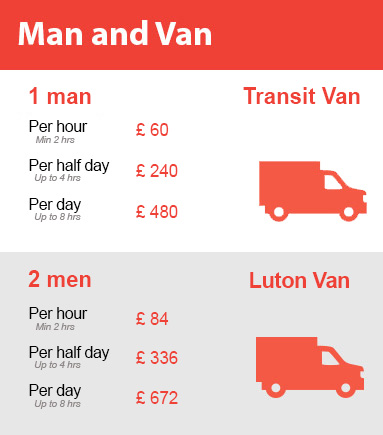Packing Done Right: Navigate Your Move with Ease
Posted on 21/05/2025
Packing Done Right: Navigate Your Move with Ease
Relocating to a new home or office marks the beginning of an exciting chapter but often comes with the daunting task of packing. Ensuring your move is seamless and stress-free starts with mastering efficient packing techniques. In this comprehensive guide, we share expert advice and innovative strategies so you can experience packing done right and navigate your move with ease.

Why Proper Packing Matters
Whether it's a cross-country move or just across town, efficient and organized packing makes a massive difference. With the right approach, you can:
- Protect your belongings from damage
- Save time during both packing and unpacking
- Simplify the moving and loading process
- Reduce stress and confusion on moving day
- Keep track of your possessions easily
Packing smart is key to a smooth moving experience, regardless of the distance or volume of your belongings.
Pre-Move Organization: Set the Stage for Success
1. Create a Moving Checklist
Before boxing up a single item, sit down and write out all the tasks that need to be completed before, during, and after your move. A detailed moving checklist ensures that you do not overlook critical steps, from transferring utilities to arranging professional movers.
2. Declutter and Downsize
_Cut the clutter for a lighter move_! Moving presents the perfect opportunity to sort through your belongings. Donate, sell, or discard unwanted items to simplify your packing process. Tackling clutter not only streamlines logistics but can also reduce overall moving costs.
Gather the Right Packing Supplies
Having the proper materials at hand makes the process quicker and more secure. Here's your essential packing supply list for a move done right:
- Sturdy cardboard boxes in various sizes
- Plastic bins or totes for extra durability
- Bubble wrap and packing paper for cushioning
- Packing tape and dispensers
- Permanent markers and color-coded labels
- Furniture pads and stretch wrap
- Ziploc bags for small items and hardware
- Specialty boxes (wardrobe, dish packs, etc.)
Tip: Start collecting boxes early from local stores or online marketplaces to save on costs and find sturdy options.
How to Pack Like a Pro: Room-by-Room Guide
_Tackling your packing one room at a time keeps things manageable and organized._
Here's a breakdown of how to handle different parts of your space, ensuring packing is done right each step of the way.
Kitchen Packing
- Start by packing rarely used items first, such as special serving dishes or small appliances.
- Use dish packs and ample padding for fragile items like plates, glasses, and ceramics.
- Seal containers with food securely or discard perishables to prevent spills.
Living Room Packing
- Disassemble furniture when possible to save space and protect pieces.
- Wrap electronics in anti-static bubble wrap and pack cords separately in labeled bags.
- Use soft furnishings like blankets to cushion delicate decor.
Bedroom Packing
- Pack off-season clothing first using wardrobe boxes for easy hanging transport.
- Label bedding and linens to make setting up beds simple in your new home.
- Keep a personal essentials bag with immediate needs (change of clothes, toiletries, etc.)
Bathroom Packing
- Use plastic bags for liquids to prevent leaks.
- Sort through medicine cabinets, discarding expired medications.
- Pack frequently used items last, and keep them easily accessible.
Garage and Storage Areas
- Dispose of hazardous materials (paint, propane, etc.) according to local laws.
- Pack tools in durable boxes and secure sharp items with protective sleeves.
- Label cords and small hardware in separate containers.
Packing Safety: Protect Your Valuables and Yourself
- Don't overload boxes--keep box weight under 50 lbs (22 kg) to prevent injury.
- Pack heavier items on the bottom and lighter ones on top.
- Use plenty of cushioning to shield breakables.
- Mark boxes containing fragile goods with "Fragile" and "This Side Up" stickers.
Pro Tip: For especially valuable or important documents and jewelry, keep them with you during transit rather than packing in the moving truck.
Stay Organized: Labeling and Inventory Techniques
Organizing your boxes ensures a smooth transition into your new home. Use these labeling techniques:
- Assign a color code to each room and apply matching stickers to boxes and doors at your new place.
- Number each box and maintain an inventory sheet listing the contents.
- Clearly label boxes with high-priority or immediate need items for quick access.
- Mark boxes containing items to be unpacked first for bedrooms, bathrooms, and kitchens.
Specialty Packing Tips for a Move Done Right
- Artwork and Mirrors: Use custom-fit boxes or sandwich between two sheets of cardboard. Secure with bubble wrap and mark as fragile.
- Electronics: Save original packaging whenever possible. Remove batteries and store cables in labeled bags.
- Clothes: Keep clothes on hangers in wardrobe boxes for wrinkle-free transport.
- Books: Use small boxes--books are heavy! Lay them flat to protect spines.
- Plants: Transport plants in open boxes. Handle with care to avoid shock and spills.
How to Pack Efficiently for Different Types of Moves
Local Moves
Moving locally? You might be able to make multiple trips. Consider packing fragile items and essentials separately so you can personally transport them.
Long-Distance Moves
For out-of-state or cross-country moves, pack everything securely and double-check box contents. Label boxes with your name and destination address, especially if using shared moving services.
International Moves
International journeys demand additional care. Check import restrictions for your new country, inventory your belongings for customs, and safeguard important documents. Professional packing services can be invaluable for these moves.
Quick Hacks: Packing Done Right with Less Stress
- Photograph cable setups for electronics before disassembly.
- Fill suitcases with heavy or valuable items--they're designed for transport!
- Use soft items (towels, blankets, socks) as packing material.
- Pack a "first night" box with essentials: toiletries, chargers, food, prescription meds, and basic tools.
- Enlist friends, family, or hire packers to save time and reduce stress.
Eco-Friendly Packing Strategies
Move sustainably by reducing waste and reusing materials:
- Reuse existing boxes and containers from groceries or deliveries.
- Rent moving boxes or totes from local companies for a zero-waste option.
- Avoid single-use plastics and opt for biodegradable packing materials.
- Use clothes, linens, and towels instead of bubble wrap where appropriate.
- Recycle all packing materials after your move.
Should You Hire Professional Packers?
If your move is large, complex, or you're short on time, professional packing services can be a lifesaver. Benefits include:
- Expert handling of delicate, bulky, and high-value items
- Time-saving and stress reduction
- Insurance coverage for packed items
- Custom crating for special belongings (art, musical instruments, antiques, etc.)
Tip: Get quotes from multiple companies, check reviews, and clarify the extent of services offered before booking.
What to Do on Moving Day
- Double-check all rooms, closets, and storage nooks for forgotten belongings.
- Communicate with your movers and provide clear instructions about fragile items and priorities.
- Keep important documents, jewelry, and overnight essentials with you.
- Inspect boxes and furniture at your new location before signing off with movers.

Unpacking: Settling In with Ease
Your hard work pays off as you begin unpacking in a well-organized space. Here's how to streamline the process:
- Start with necessities: beds, linens, and toiletries so you have a comfortable first night.
- Move room by room, using your color-coded or numbered system.
- Break down boxes and packing material as you go to prevent clutter.
- Take your time personalizing your new space; there's no need to rush the finishing touches.
Final Thoughts: Master Every Move with Smart Packing
Navigating your move with ease starts by packing done right. By organizing in advance, using quality materials, and following expert techniques, you'll protect your belongings and make your transition smoother. From gathering supplies and decluttering to labeling and unpacking, each step brings you closer to making your new place feel like home.
Ready for a smooth relocation? Implement these techniques and enjoy your journey--wherever it may take you. Remember, proper packing is the foundation of every successful, stress-free move!





